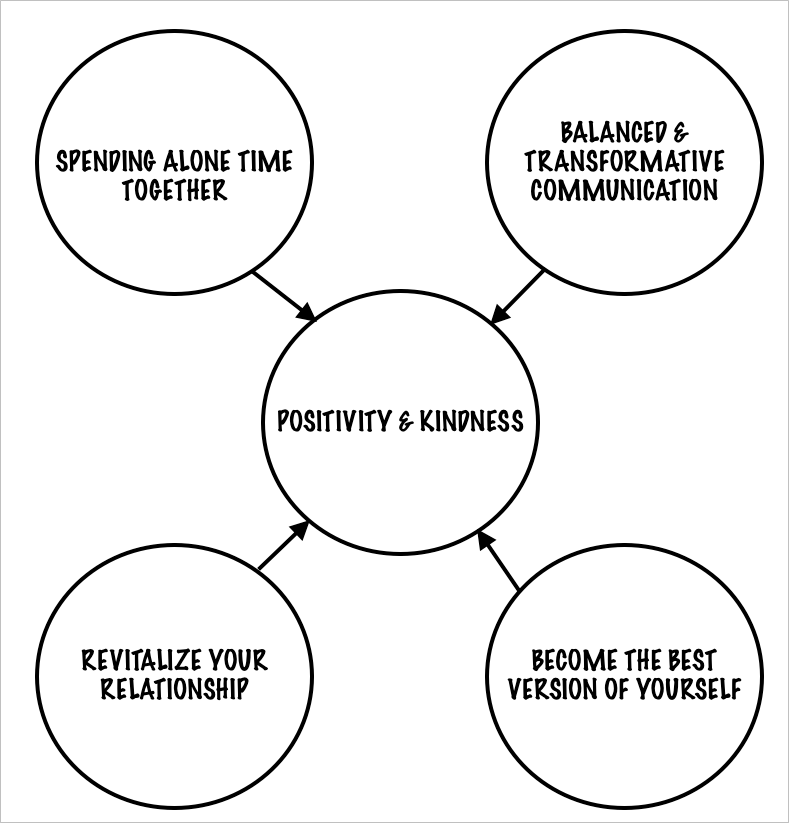A marriage is suppose to be a lifelong commitment. It is suppose to last forever, no matter what happens during the course of the journey.
But sometimes along the way…. we can lose our way.
Mistakes can be made.
A marriage partner can forget how important their spouse is to them and sometimes they can get drawn into an affair of the heart. For example, I recently wrote about this topic in the post to follow….
https://marriagerecovery.com/is-my-wife-having-an-emotional-affair/
And I think we all know how dangerous such liaisons can be. When a wife or husband is betrayed, it causes a fracture in the foundation of the relationship.
There seems to be a lot of words to describe this type of behavior. And I have a theory about that.
Many call it simply “having an affair”.
Others refer to it as a having a fling or infidelity.
Some of my married clients characterize this behavior as hanky panky, having a dirty week-end or fooling around.
Back in the day, extramarital affairs were described as two timing or having someone on the side.
The fact that we have so many words and phrases to describe this destructive behavior, speaks to the prevalence of this behavior in our society.
It is almost like a dysfunctional self delusional con game.
A lot of people speak of its many ills and characterize unfaithfulness in the most negative of terms.
Yet many of these same people advance this behavior through their participation.
Hence…like a shell game…society keeps coming up with words and phrases to describe the sexual dysfunctions…but secretly participate in the very activity they condemn.
In 1991 study by Shere Hite (sex researcher) revealed that 70% of married women cheated on their spouse. A few years later, 72% of men were found to commit adultery as well.
Now, if you ask me, those numbers seem high.
I have seen other sources citing a lesser percentage of married cheaters (about 20-25%). Whatever the accurate number is (good luck in getting everyone to tell the truth), what is indisputable is that affairs can lay waste to an otherwise, healthy and fully functional marriage.
Cheating on your spouse is really an ugly event, that has devastating consequences. Whether it is you or your spouse is having the “affair”, the act of betrayal leaves a wake of destruction
Affair Proofing
Now, let’s go back to the question of what one can do to affair proof their marriage.
I think the premise of the question is flawed.
It’s not like you can buy insurance that protects you from a spouse that strays. The damage once sustained, is seldom forgotten and the pain can last a lifetime.
There is no surefire protection from deceit.
When a spouse decides to break their marital vows and enters into an affair, no amount of preparation can guarantee protection
I hear people talk all the time about doing things to protect the marriage. But I think we need to shift the spotlight from this entity we call “marriage”.
Let me explain.
First of all, a marriage is not a living entity.
A marriage is a term we use to describe the totality of the behaviors two people invest to form a union.
We need to stop operating from a premise that one should invest a great deal of their time trying to think of ways to prevent their spouse from cheating.
Of course, we do not want our spouse straying. And the fear of that possibly happening can cause some married partners to enlist all kinds of actions in the hopes that no such behavior ever occurs.
I do not reside in the camp that says one should focus on this topic to such an extent that it becomes a constant talking point within the marriage.
If one calls too much attention to a topic, just that process in of itself will not only create negative reinforcement, but sometimes it results in the exact opposite of what you would want to happen.
It’s like when you tell your child not to eat the candy…not to eat the candy…not to eat the candy.
The child starts thinking that there must be something really good about that candy.
They start thinking about the candy. And when an opportunity reveals itself and your back is turned. Guess what they do? They eat the candy.
So I am not a big fan of setting up elaborate schemes and tests to ensure your spouse is not going to betray you. That kind of thinking in my opinion turns our energies into the wrong places.
If you or your spouse think that way, you are operating in fear.
And our fears move us to behave in the wrong ways.
I have counseled plenty of marriage partners and my experience is that when they concoct all kinds of tests, actions and rules in the hope of preventing their spouse from having an affair, they end up creating issues that causes harm to the relationship.
Let’s talk about some of these things.
Fear of Betrayal Can Cause Us to Over Compensate
I had a client who frequently thought about the prospect of her husband having an affair.
It was not because of any specific thing he had done or said, but the notion of a possible betrayal was always in her mind because she had a couple of boyfriends that once cheated on her.
As a result of this past history, it caused her to overcompensate in many of her behaviors. She was too clingy and constantly would tell her husband how relieved she was that he never cheated on her.
I know, it is an odd thing for anyone to say.
One should not feel relief that their spouse is not straying. We should feel our husband (or wife) have a marital obligation not to cheat.
Fear of a Cheating Spouse Can Drive Us To Be Overly Suspicious
It is perfectly normal to be a bit suspicious of our lover.
Wanting to check up on our spouse is not entirely unhealthy, provided it comes in small doses.
A problem erupts when we get so paranoid about a possible spousal cheating episode that we concoct all kinds of far fetched scenarios in our mind.
This invariably leads to behaviors that make us scrutinize far too many things.
This can result in a dangerous cycle of turning over and over every thing that your husband or wife says or does.
I have seen some marriages where the unwarranted suspicions were so numerous that it ended up stirring the pot of resentment from the other spouse.
Your Fear of a Disloyal Marriage Partner Can Cause Control Issues
With all of the statistics and frightening stories out there about the hanky panky problem, some people get so tied up in knots they decide to put the squeeze on the partner.
I call it the “Short Leash” effect.
You hear about a neighbor’s husband or wife who cheated or a friend of yours tells you a horrifying account of how their spouse betrayed their trust and had sex with the babysitter.
Before you even realize it, you feel compelled to control every movement and activity of your spouse.
Ok….I need to clarify something!
When I use the word “You”, I am not specifically referring to You the reader. I am just using that word to advance the dialogue of the text.
Ok, now back to my example!
The problems caused by controlling behaviors are obvious.
They almost always lead to breakages in other departments of the marriage.
And the funny (i.e. funny bad) thing about controlling behavior exhibited in relationships is that the “Controller” is often not even aware of their tendencies.
When their spouse points out their unwelcomed attention, their partner immediately goes into the denial phase.
Why does this happen?
Well, it is because of their obsession has laid siege to their ability to control the thoughts flashing through their mind.
This is particularly the case when your spouse exhibits obsessive and compulsive behaviors.
They just can’t seem to stop themselves and end result is a marriage filled with oppressive behavior.
Your Fear that Your Spouse is Fooling Around Causes You to Obsess
Show me an obsessive marriage partner and I will show you a relationship that is coming unhinged.
While it may not be the worst of marital problems, obsessiveness, if it occurs with great frequency, needs to get resolved or treated for the sake of the couple’s long term happiness.
I have seen couples savagely fight over a great many things.
I have seen couples recover from a horrible affair.
I have even seen married partners split up and get together again, over and over again.
In the marriage counseling business, these are very serious types of problems.
But none of those couples had deeply rooted obsessions that ruled their lives. So as a result, they were able to work through these problems and their marriage recovered
A marriage partner who often obsessively interacts with their spouse is contributing to the suffocation of the relationship.
A word to the wise.
Avoid acute obsessive behavior.
If you have problem in this area, please get some help, not just for yourself, but for the sake of your marriage.
Your Fear of Having a Two Timing Spouse Can Cause You to be Desperate
When people feel emotionally backed against the wall and agonize over whether their spouse is fooling around, certain desperate behaviors can rise up.
These feelings of desperation, triggered by the fear of an unfaithful spouse, can cause panic attacks or outbursts.
Desperation can also cause the spouse to become overly eager to please or cling.
Obviously, all of these behaviors if frequently exhibited, can cause stress on the marriage.
None of these emotional outcomes are attractive and because they are reactive in nature, can cause a weakening of the relationship due to a personal power shift.
What do I mean by a Personal Power Shift?
Each of us have influence within our marriage and that influence is governed by the amount of personal power we exert in the marriage.
In a healthy marriage, the balance of power between the spouses should be equal such that no one person always gets their way.
When desperation creeps into a relationship, the balance of power shifts from one spouse to the other.
Successful marriages are not dictatorships. The decision making and influence each person exerts should be equal.
Desperate behaviors tilts the power balance and that leaves room for misuse, abuse, and control issues.
Wrapping Up Your Fears

Indeed, all of the fears we have described above are unhealthy for the marriage in the short run. And in the long run, these behaviors and outcomes can be devastating to a relationship.
Sometimes our fears and the impact they have on us and our marriages, are worse than the actual events that you are dreading.
Don’t you wish we can just wrap up all of our fears and put them in a box with a nice little bow.
Then one evening, we could just take that box of fears and place it on the side of the curb for the trash man to pick up in the morning.
Well, let’s do that.
Let’s participating in a form of VISUALIZATION.
It’s called mental imaging.
Think of some of the unreasonable and unattractive fears you would like to cast away.
Ok, are you thinking of them!
I will give you a little more time!
Do you have them captured in your mind’s eye now!
So just put them in a large box and slowly walk that box out the curb.
But I want you to take really slow steps and imagine those “stupid fears” jumbling around in the box.
I want you to imagine that your box is completely sealed and that it is impossible for it to be open.
Ok, now set your box down next the curb.
Now imagine hearing the loud noise of the trash truck coming down the road.
You watch them pick up your trash and haul it away to the dump.
Say goodbye to your Fears.
They are headed for the trash dump where they belong.
Switching Gears
Now we are going to do something else.
The original question we asked in this post was, “What Can you Do To Affair Proof Your Marriage?
So let’s reframe the question.
Can we do that?
Of course, we can.
If we can walk our trashy fears to the curb in a box, we can do anything!
You and I are partners in this article.
I am writing it.
And you are reading it.
So if we want to reframe this question that deals with betrayals and affairs and marriages, by golly we are going to do so.
It’s better to ask:
What you can do to improve the affairs of your marriage?
Yep, that is the way we should think of this issue.
You have heard the old saying, “getting our affairs in order”.
I suppose another way of saying it is, “getting your sh#t together”!
Well, that is what we are going to do.
We are going to focus our energies on the things that not only will help you strengthen your marriage, but in doing so will create an environment where neither spouse will be motivated or even think about having an affair.
Can I guarantee your husband or wife will never stray?
Of course not.
But I believe your chances of having an affair free marriage is much greater when the couple is focused on the right things.
So where should the focus be?
I submit to you that your concentration and efforts should be focused on two main areas
- Growing Your Love Account
- Implementing the 5 Essential Principles of a Successful Marriage
Love on Account of Your Deposits
So you might be wondering what the heck is a love account.
You might have a clue if you have read a few of my other posts here at marriagerecovery.com.
But in case you have not, let me give you the reader’s digest version.
When I think of a marriage between two loving adults, I think of a fluid and dynamic experience.
In almost all case, these two adults come into the relationship with a positive account balance. But I am not referring to their financial account. Rather, what I am talking about is an account of the heart…the love account.
Every day, you and your spouse have an opportunity to make deposits into that account. The more deposits you make (in the form of kind acts and positive behaviors directed at your spouse), the greater your balance.
When you balance grows, so does your trust security.
Of course, during the course of your married lives, you can do things that result in withdrawals being made from your relationship love account.
Now, none of us are perfect, so there will be inflows and outflows throughout the course of our marriage.
But clearly, you want your love account to grow. And there is something amazing about healthy love accounts.
When you have children and they grow up in an environment of you and your husband or wife expanding or maintaining a healthy love account, they take with them tools to successfully create their own accounts.
These are the dividends you get from being a successfully married couple.
So how do you achieve all of this?
The Circle of 5
My core belief in improving marriages revolves around the marriage partners successfully implementing the 5 synergistic Principles.
I talk about them throughout this website. So I won’t go into much detail here, except to say that even if you can only successfully implement 2 or 3 of these Principles, your marriage will be better for it, particularly if you meet the Golden Principle (i.e. Exhibiting Kindness & Positivity)
As a recap, the 5 synergistic Principles are:
- Show Your Spouse Kindness & Positivity
- Increase the Time You Spend With Your Marriage Partner
- Transform Your Communications
- Periodically Revitalize Your Relationship with Your Spouse
- Become The Best You
Affairs of the Heart – Breaking It All Down
But you did come here to discuss affairs of the extramarital kind, right?
We certainly can’t just whitewash this whole topic and pretend it does not exist.
It is a problem that exists far too often between two married people.
So let get into the topic a bit more.
What is an Affair? (emotional vs physical)
Believe it or not, there are folks who like to debate what an affair really is.
I will try to make things easier for you so as to cut through some of the nonsensical things you may read out there.
In my book, an affair is when you develop either deep romantic affections for someone else and/or have sexual relations with another individual.
Affairs involve connecting on either an emotional or physical level or both.
There are many ways in which affairs are described. There are the full blown, full out, types of extramarital affairs in which a spouse believes they have truly fallen in love with another and seek to end their marriage.
Then there are the casual affairs or flings, as some may call it, that are usually not long lasting. But this kind of cheating equally poses a serious threat to the marriage, even though the cheater will fool himself or herself into thinking it is not that bad.
Married individuals can enter into in a relationship in which they give themselves up completely on an emotional level and romantic level, but there are no sexual relations (as of yet).
That is what some call an “affair of the heart”.
Can a person have an affair without ever meeting another, such as online and/or over the phone kind of relationship?
Sure you can, though the line between curiosity and a deep emotional connection can get a bit blurry at times.
If you find yourself hiding a close relationship or any strong connection where some romantic feelings are invoked, then you are very likely having an affair of some kind (either emotional or physical or both).
If one was to break down the life cycle of an affair, it would follow a four phase process.
Stage one involves frequent contact and connection as the bond grows.
This is followed by the desire to keep the affair a secret from one’s spouse.
Phase 3 usually involves meet-ups and dates where the two people are able to spend time together.
And Phase 4 involves the sexual liaison, often involving intense and gratifying sexual relations.
What Are the Effects of An Affair?
Affairs can be exceptionally damaging to a relationship in many ways.
They usually involve a wholesale drain on the emotional love account created by the couple.
All of those years you spent making valuable deposits into the relationship trust account and developing a deep connection and bond with your husband or wife, can be utterly destroyed.
And once a marriage is damaged to such an extent due to an extramarital affair, it is not just the relationship that is laid waste. But the lives of children, family members, and friends are often substantially affected.
Think of what happens when a hurricane come through a town. It is a devastating force that is indiscriminate. Anything in its path is usually severely damaged. And the destruction can take years to fully recover from.
In my experience in working with couples who are dealing with an affair, there are no winners…only losers.
Anyone who thinks they can cheat and it not be eventually found out are fooling only themselves. The vast majority of those married partners participating in an affair either admit to their cheating ways, are caught, or their married spouse strongly suspects.
It is practically impossible to carry out an affair for any length of time in which the marriage partner being cheated on does not either consciously becomes aware or strongly suspects that their spouse are engaged in an affair.
Why Do Affairs Occur?
So if affairs are so bad and can cause so much damage and adversely impact so many people, why would anyone ever want to have one?
After all, look at the damage they almost always cause.
Look at the reality of how often extramarital affairs are discovered.
Why would any self respecting individual ever want to destroy their life, their spouse’s life, and hurt many others as well?
It seems quite irrational doesn’t it?
The answer to why affairs occur is not a simple one.
One has to travel down many paths of behavior and examine various internal and external (to the marriage) causes to draw closer to understanding.
The reasons are sometimes obvious and sometimes quite subtle and can be predicated on somewhat random occurrences.
Even after this type of examination, the answer as to why people enter into affairs is not always crystal clear.
For starters, it appears to be wired into the way we think. Studies show that 74% of men and 68% of women state the would have an affair if they knew that they would NOT get caught.
So when you look at data like that, one is left with the thought that one reason why people desire to have an affair is due to selfish driven behaviors.
Now being selfish is not in itself always a bad thing.
When are born, we are the most selfish of creatures. We wholly depend on others and our own needs are paramount.
So we all have some selfishness built into us.
I see selfishness as when people are thinking mostly of themselves…their needs…satisfying their own goals…curiosities…self fulfillment needs, and sense of being wanted or valued.
These things by themselves are not bad.
It is only when you sacrifice the bond of marriage to selfishly and often times blindly pursue individual needs that the balance of one’s priorities can get out of kilter.
So some husbands or wives think if they are not discovered, which of course is a fool’s game, why not just indulge their fantasies.
Some people fool themselves into thinking that they won’t be caught and while they may be very much “in love” with their spouse, they will explore their curiosities of being with another person.
The problem with this kind of thinking is that sex, attraction, and love are all three different things, but they should all be reserved for your spouse. If you start spreading them around to different people, you end committing the “Mother of all Selfish Acts”.
And when an extramarital affair develops and these three things are shared with and between another individual who is not your spouse, life can get very confusing and complicated.
Your feelings on who you love can get confused and suddenly you find yourself at the mercy of a lot of raging brain chemicals egging you own to keep having the affair…forming this new bond with a person who is not your spouse.
Yes, at our core, we are all selfish beings.
Some of us more than others.
What we need to to do is become wiser beings such that we understand all the pitfalls associated with having an affair.
So what else causes a person to have an affair? Well, the research shows that women tend to have an affair for emotional satisfaction, whereas men do so for sexual pleasure.
This appears to be born out by the statistics which reflect that when women have an affair, only 34% report being very happy in the marriage, suggesting that women seek an affair for the emotional connection.
Whereas 56% of men report being quite satisfied with the relationship, suggesting that many men have sex on the mind.
The catalyst for seeking emotional satisfaction could be due to dysfunction in the marriages.
Or it could be something even more complex, such as a deep psychological need to feel loved by another or by multiple individuals.
As I warned, understanding the layers of our emotions that can trigger the impulse to have an affair is complex. But impulse and desire are just one side of the coin.
A number of individuals who have cheated on their spouse report that they did so because they felt bored.
I would characterize this kind of reasoning as a subset of the selfish drive which we discussed a bit earlier.
Some individuals, despite the risk and negative long term potential consequences, will seek more immediate gratification. I guess we can call this stupid, boneheaded, and many other things. But at it’s core, it is selfish behavior.
One also has to have an opportunity for an affair to develop which can occur either thru happenstance, the person’s own proactive actions or another person who is strongly pursuing the spouse.
Some research has shown a genetic disposition for certain individuals to cheat. This same gene appears to be also present in those with various addictions (e.g. gambling, alcohol, risk taking).
The phase of one’s life or marriage can play a role in when cheating happens.
A marriage, while satisfactory in some areas, may have become stale and predictable in other areas.
Perhaps the romance or sense of newness has worn away. Hence, without efforts to periodically revitalize the relationship (ie. one of 5 Key Principles), the marriage can fall prey to our baser and less thoughtful behaviors.
Cheating on your marital partner is a phenomenon that impacts all demographics though it appears to impact somewhat more those couples who have not graduated from High School or who largely depend on their spouse’s income.
Another driving force that causes affairs to come about is the “Old Flame” phenomenon.
About one third of women who admitted to cheating on their husband, did so through acting on feelings from a previous relationship.
For men, the number was 21%.
So it appears to be true that in some cases, the old flame never completely dies out.
Though bear in mind we are talking about an overall small percentage of the total number of married men and women.
How Does One Go Forward When an Affair has Happened?
Once the affair is revealed, almost all couples go through a period of some chaos.
Denial gives way to shock and anger, which leads to various levels of sadness, disappointment, and depression.
Eventually, when the depth of what has happened is processed and both parties come to terms with working on improving the relationship, many weeks or months may have already passed.
Entering into couples therapy can be very effective, but there is no surefire way to promote, long lasting healing.
Denial of the betraying act seldom leads to the relationship regaining its footing.
The most important step to healing and re-establishing the bond between the husband and wife is when both parties have a sincere desire to repair the relationship.
That can be hard in the beginning, since many confusing emotions will rule the days and weeks following the discovery of the affair.
Some relationship experts suggest that allotting time each day to discuss specifically the benefits of improving the marriage is a step in the right direction.
This is a practical approach for couples who already have a solid foundation of communication in place.
But if the affair has occurred on top of an existing dysfunctional marriage, whereas balanced communications is practically non-existent, then the road to recovery could be much more difficult.
Avoid constantly rehashing the past. It serves only as a negative reinforcer. It is better to focus one’s energies into talking about commitment and life plans going forward.
Most successful marriages are forward looking, applying lessons learned from the past.
But first one has to deal with overcoming the emotional injury caused by the affair. There can also be undesirable physical ailments (e.g. headaches, fatigue, etc) due to the stressed caused by the affair.
The Four Phases of Marital Recovery
If one is to break the recovery process down into its respective phases, we are looking at 4 key objectives the couple should strive to achieve.
- Break All Ties: The married partner who committed the act of adultery must sever all ties with their former lover. If this is not done immediately and in a transparent way so it is obvious to the spouse that the ties have been severed, then marital recovery will never get off the ground.
- Transparency is the Key: The spouse who was betrayed will rightfully be exceptionally sensitive to the possibilities of a re-occurrence. In the beginning, no matter how many times you tell your husband or wife that you are sincerely sorry and will never, ever betray their trust again, it will not be enough. Even if you consider yourself an exceptionally persuasive person, you will fall short unless there is “proof in the pudding”. What do I mean by that? You will need to frequently provide proof in the form of evidence such as making your phone calls, texts, social media accounts, and credit/debit card statements an open book. You will need to call your spouse and talk to them on the phone more frequently throughout the day. You may even need to provide proof of your health in the form of a STD test.
- Come Clean: The third objective is to allow for an honest discussion about the affair. If you speak in vague terms or lie, odds are that your spouse will disatisfied with your explanation. Sometimes, the “unknown”, is more troubling and upsetting. If the spouse had a full blown affair which lasted two years, they should not try to reshape reality by describing the affair as casual, only lasting a few months. The odds are that their explanation will not be supported by the evidence. As painful as it may be, come clean.
- Spend More Time Together Alone: One of the five key synergistic Principles of a successful relationship deals with spending more time together alone. So phase 4 of picking up the pieces focuses on rekindling the passions and romance between you and your spouse. This means spending quality time together in all types of locales so that each of you can enjoy the new experience, together.
Final Thoughts
I would encourage my readers to weigh in and share your experiences, good and bad, and what worked for you and your spouse when dealing with an affair or suspicions that your husband or wife may be cheating on you.
The sharing of this information will be therapeutic for yourself and hopefully helpful to other readers.














